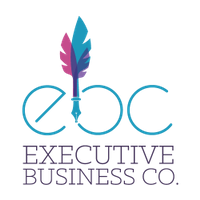Course details
Supply Chain Design and Integration:Supply Chain Management extends the study of logistics beyond the boundaries of a single organization, and places particular emphasis on the interfaces between the 'chain' or 'network' of enterprises engaged in moving products, services, and information, from suppliers through intermediaries to end users/consumers. This training course focuses on developing a supply chain design and integration, something which many organizations still do not have in place even today. Channel relationships between processors, manufacturers, and distributors will also be reviewed, particularly as leading organizations are now openly embracing more collaborative behavior for mutual benefit.
Total Quality Management:
Total Quality Management (TQM) helps the participants to view quality from a variety of functional perspectives, gain a better understanding of the problems associated with improving supply chain quality. This training course focuses on the essence, principles, and practices of total quality management. Some of the ideas and topics that are covered are: process improvement, process orientation, service quality, human resources, customer satisfaction programs, quality function deployment, process control and capability, role of inspection, economics of quality, productivity measurement, and learning and organizational performance measures
Demand Forecasting:
Provides theoretical background in the area of quantitative and qualitative techniques used to forecast demand, improving participant capability to make better decisions using such techniques, strengthening participant modeling experiences of real world problems that can be solved using these techniques, and providing participants with the chance of utilizing some computer packages used to solve forecasting problems
Inventory Management:
This training course aims to introduce the participants to the fundamental nature of inventory from a financial, physical, forecasting, and operational standpoint. The ultimate goal of this course is to present immediately usable information in the areas of forecasting, physical control and layout, and problem recognition and resolution.
Supply Chain Sustainability:
The focus of this training course is on the sustainable supply chain planning and its environmental impact. It introduces participants to the basic concepts of reverse and green logistics practices, discusses the role of regulations concerning product take back policies, life cycle assessment, and international environmental standard such as ISO 14000, and explores the impact of legislations and policies on logistics practices and reverse logistics network design. Closed-Loop Supply Chains (CLSC) may offer companies a unique opportunity to improve their profits on the one hand and to serve societal responsibility on the other hand. The management of CLSC differs in a number of ways from managing supply chains in general.
Warehousing:
- Locating, structuring, and operating the warehouse
- Implementing Lean principles in the warehouse
- Crafting an inventory strategy using Stock Keeping Unit (SKU) segmentation
- Role of the warehouse in the value chain
- Creating a metrics program and establishing an executive KPI dashboard
The first module provides an introduction to the core elements of the container shipping industry and covers topics such as the global economic developments, origins and principles of containerization, evolution of scheduled services and the emergence of container ports around the world.
The Container: Types, Terminology, Management, Packing and Security:
The module describes and explains the types of container that are used in the carriage of a variety of cargo on board container vessels in international maritime transport. This includes aspects with regard to dimensions, types of containers, container tracking, and inventory management as well as container security in international maritime transport.
Container Logistics, Supply Chain Principles, Port and Terminal Operations & Operators:
The INCOTERMS 2010:
INCOTERMS are the different types of shipping terms (via land, air, sea) used in all kinds of international trade transactions. A new set of INCOTERMS has been effective worldwide by January 1, 2011.
Understanding these new rules and incorporating their use in sales contracts eliminates the uncertainties, errors and costly mistakes in the interpretations created in trade transactions Updated on 16 July, 2018
Job roles this course is suitable for:
Warehousing Manager , Senior Shipping Officer , Supply PlannerAbout Executive Business Co.
Executive Business & Company, EBCJO, is a corporation founded in 2015 in Amman – Jordan that specializes in Consultancy, Training, and Media & Advertising.
Vision: Our vision is to restore high standards to keep our customers pertinent in tomorrow’s world
Mission: Become the most reliable source for organizations & individuals who are looking to develop their skills and reach measurable & visible results by providing the most comprehensive services in consultancy, training and Media & Advertising.
We target corporate groups, Fresh Graduates & Undergraduates, Universities & SME’s.
Our services are specialized in media & advertising, Digital Marketing and Digital Media executed by an experienced team that come from different backgrounds and years of experience in different industries.
Enquire about this course
You may add more courses here,
your list will be saved.



